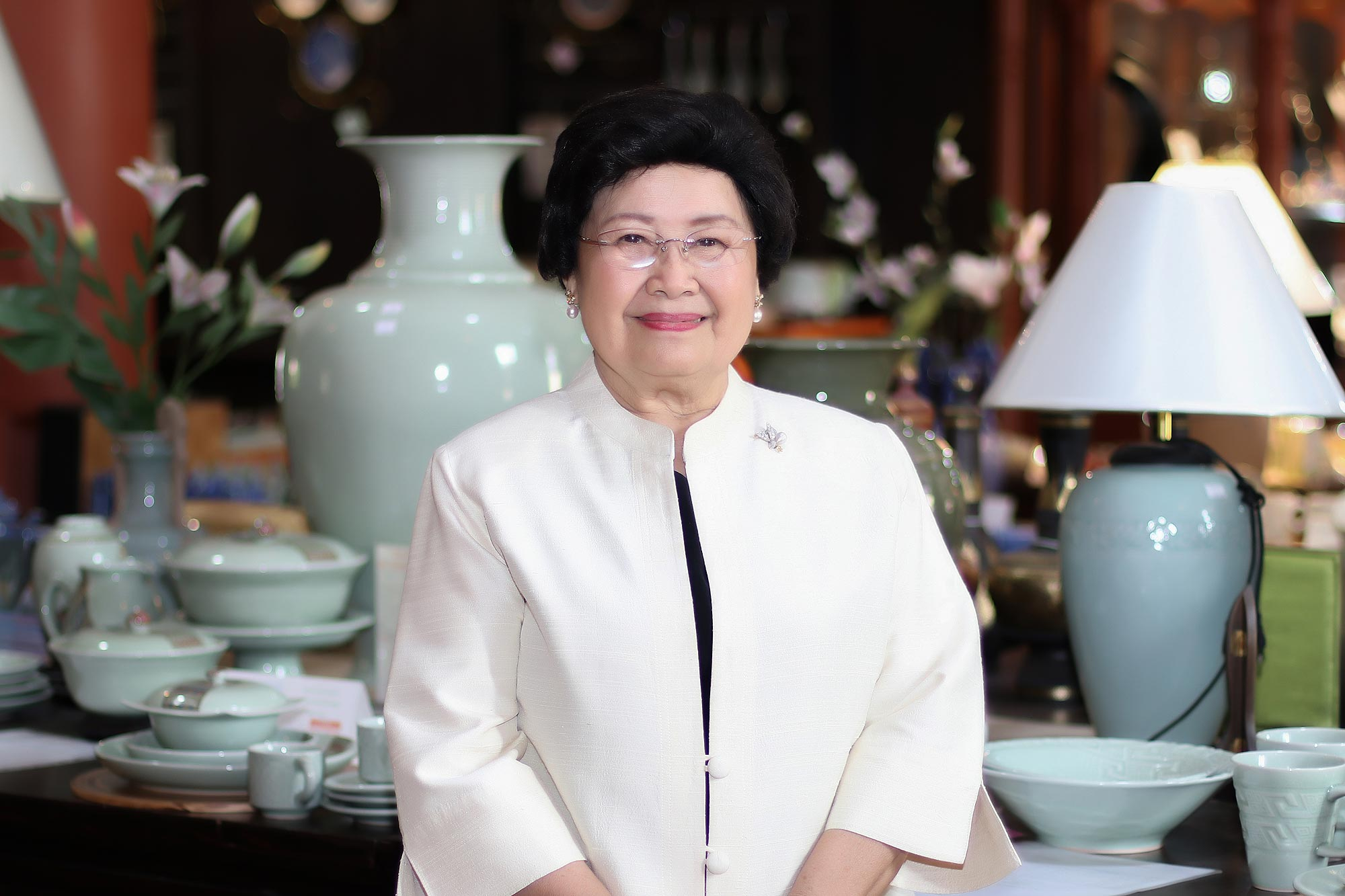

✓ Item added to cart
View Cart
Elephant-Themed Celadon Ceramic Incense Holder - Sipping Elephant
Learn more >
Sourced
Guarantee
Crafted of ceramic, a charming little elephant sips from a bowl in this beautiful incense holder from Thailand. Penpan presents this addition to your home, which is finished with a crackled green celadon glaze. This home accessory is intended for incense cones.
- Ceramic
- 0.26 lbs
- 1.8 inches H x 6.3 inches W x 4.7 inches D
THE STORY BEHIND THE PRODUCT

Artisan Organization: Penpan
Country:
"My name is Penpan Wangviwat. I am the owner of a celadon ceramics workshop, which was founded in 1976 as a part of other family endeavors. My passion for nature and the traditional lifestyle that has surrounded me has helped me to discover the art of pottery with the charm of ancient ceramics, such as the unearthed celadon wares from Thailand's Sukothai period.
"Celadon is a name for an ancient Chinese innovation in ceramics discovered over 2000 years ago. I've been fascinated by the beauty of celadon ever since I was a student. At that time, I saw many famous traditional handicrafts, such as Thai silk, cotton, pottery, and wood sculptures.
"In 1976, my friend and I started a small ceramic workshop for crafting celadon ware. We didn't know much about the process at first but, by learning from some craftsmen from older generations, we studied and improved our techniques. We started with just one ceramic kiln and 10 assistants. Our first line of products included plates, bowls, mugs, vases, and small home decor pieces that we sold to local people and tourists.
"Our main strength is that we try to preserve the authentic celadon glazing mixture formula, which comes from two kinds of wood ash mixed with topsoil obtained from freshly harvested rice fields. The greenish color of celadon gives the each piece a glossy surface that is as beautiful as jade, without the use of chemical pigments. Celadon involves a reaction of the natural organic substances blended with the atmosphere of the high-temperature kiln. The position of each piece in the kiln is also a major part of the glazing process. The age of the two kinds of wood that provide the ash also influences the color shading. Each part of the process influences the others and is, in turn a characteristic of the standard green celadon. Charming in its glossy, but uneven color, celadon features a unique crackled surface, making each new piece distinct from the rest.
"Due to Thailand's deforestation, the two kinds of wood that we used became rare. Also, the firing control technique has become too complicated to be competitive in the marketplace. Because of this, we use waste wood, such as reclaimed longan wood, among others. We have had to adjust the mixture formula and improve our design while suiting customers' tastes at the same time.
"The workshop is my family's livelihood, and my daughter is my successor. I help with general operations, marketing, and standards. We have several departments, such as soil, glazing, molding, designing, etc. Teamwork is the most important element in handicrafts, and you need to be careful every step of the way. Today, we have more than 80 working with us, including both craftsmen and store staff. Most of them come from the San Kamphaeng area. I think people in this area have artist blood; they're kind, humble, and fast learners. Our craftspeople pass their experience on to friends and coworkers in order to keep our original formula, and they're happy to preserve this tradition.
"Celadon has its own identity and value. This green color is never outdated for people who are fascinated by it. Sometimes we get large orders from customers, but they understand that we cannot make our pieces for a discount because they are made entirely by hand.
"We will try harder to create products that suit every generation and every era. We are also trying to preserve 'green' concepts by not using any chemicals in our process.
"We carry on and will preserve the character of celadon's natural wood ash glazing without alteration, holding ourselves to a universal standard. We hope that our shoppers will be satisfied and treasure our totally handmade pieces, featuring traditional techniques that have remained unchanged over the years. It is a great pleasure to be part of this team of artisans."
Awards:2001 and 2003: Unesco – Ahpada 2001 Seal of Excellence for Handicraft Products in Southeast Asia
2014: World Craft Council (WCC) – Award of Excellence for Handicrafts 2014 South East Asia Programm"























